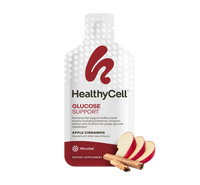At a Glance:
- Fasting has many proven health benefits, including improved nutrient absorption.
- Some advocates claim it’s a good idea to take vitamins and supplements while fasting.
- Avoiding vitamin supplementation during a fasting period improves the effects of the fast and the health benefits of the supplements.
- It’s important to choose high-quality foods and supplements after a fast because your body is in a primed state to absorb nutrients more efficiently.
Fasting, in its various forms, has been used for thousands of years. However, over the last several decades this ancient practice has seen a surge in mainstream popularity thanks to the health and weight loss benefits it has been shown to provide.
With the pronounced spike in fasting awareness and those participating in the practice, we have been flooded with information, both accurate and inaccurate, that tends to muddy the waters regarding fasting “best practices” and protocol. Unfortunately, misinformation is often how useful diet and health practices can get labeled as ineffective fads when, in actuality, they are sound.
One example of an ill-informed fasting “fact” that many people believe is that they should still take their supplements while in a fasted state. Proponents of this idea have made numerous claims as to why you should consume your supplements and multivitamins while fasting, stating everything from the increased potency of vitamins and minerals on a fasted system to claims that it improves the effects of fasting itself.
So what are the biological benefits of foregoing food? And how do vitamins and supplements affect an intermittent fast? Today, we take a deeper look at why you should avoid taking your vitamins and supplements during a fast and what you should focus on while you skip out on sustenance for a set period of time.
Facts on Fasting: Benefits of Intermittent Fasting
While there are many different ways to approach intermittent fasting, impressive health benefits seem to remain relatively consistent. Some of these science-backed benefits include the following:
- Enhanced stem cell rejuvenation – A study conducted by the biology department at MIT found that after just 24 hours, intestinal stem cells had an increased capacity to regenerate.[1] The researchers also noted that the result was seen in both young and old test subjects, indicating that fasting might be particularly beneficial for the older population, who have a decreased ability to regenerate damaged and aging cells.
- Reduced oxidative stress – Oxidative stress, which is the result of free radicals created from aging and exposure to environmental toxins, causes cellular degeneration and inflammation. It has been linked to many health issues including chronic illness.[2,3] Studies suggest that intermittent periods of fasting create an effect on our cells that is similar to that of physical exercise.[4] Essentially, fasting produces a “good” type of stress that allows our cells to become more resistant to free radicals.
- Improves brain function and memory – Research has shown that intermittent fasting has a two-fold beneficial effect on cognitive function.[5] First, fasting increases the rate of neural cell regeneration, which ultimately improves the rate at which your brain cells fire and transmit signals. Second, intermittent fasting raises the levels of a brain hormone called brain-derived neurotrophic factor, which is involved with maintaining a positive mental state and overall brain health.
- Increases cellular repair – Our cells must undergo a “housekeeping” process in order to function effectively and efficiently. Periods of fasting allow our cells to focus their efforts on this process, known as autophagy, rather than on breaking down food or managing the toxins that come with poor dietary choices.[6]
In addition to the positive physiological effects of fasting, taking a break from our normal eating pattern can change the way we view food and how we approach our diet. Most of us are fortunate enough to have access to more food than we need at any given moment, which can cause many to develop unhealthy habits like overeating, food addiction, and generally making poor food choices. By abstaining from food for a set period of time, many people experience a shift in perspective and how they approach diet and general lifestyle choices. Many who engage in intermittent fasting tend to eat more mindfully, choosing to consume smaller meals that focus on whole, natural foods.
With the extensive list of promising health benefits, its no wonder why those who practice intermittent fasting want to ensure that they follow a protocol that allows for the maximum benefits. For this reason, it's important to take vitamins at the appropriate time to optimize the effects of both the fast and the supplement.
Why you shouldn’t take supplements during a fast

It may seem intuitive to try and supplement a fast with a multivitamin product to ensure you’re continuing to feed your cells the micronutrients it needs to function at its best. However, supplementing a fast with vitamins and minerals will actually mitigate the health benefits of the fast while also shortchanging the positive effects of the actual supplement. Not to mention, many people will experience nausea and other gastrointestinal distress when taking a vitamin supplement on an empty stomach, which can be particularly detrimental when trying to maintain a healthy electrolyte balance while fasting.
During a fast, our body will rely on internal sources to keep us fueled. In addition to the cellular “housekeeping” that helps our internal system to reset during a fasting period, our cells will also begin to break down endogenous compounds, such as fat, to ensure that you maintain adequate levels of micronutrients and energy. By breaking down fat tissue, tapping into these reserves will release the stored fat-soluble vitamins that remain in our tissue. Additionally, with an adequate intake, the majority of the population will maintain sufficient levels of the water-soluble vitamins during a short-term fast, even though these nutrients are not stored in the body.
Not only will avoiding supplementation during a fast improve our own body’s utility for using internal vitamin and energy sources, but it will also enhance the effects of the actual supplements. Our body is incredibly adaptive and will recognize a short-term vitamin deficiency almost instantaneously. In response, our system will prime itself to absorb these nutrients at a higher rate in order to maintain a state of homeostasis, or, biological balance.
While our body is prepared (and will ultimately benefit) from a break from micronutrient intake, there are a few minerals that are important to keep an eye on while fasting. These include sodium, potassium, and other important electrolytes, that play a role in fluid balance. During the initial phases of a fast, our body burns through glycogen, our bodies’ stored form of carbohydrate. Because reserved carbs also hold water, when we are in a fasted state we rapidly excrete any held bodily fluids. This rapid water loss can be dangerous and lead to complications like dehydration, irregular heartbeat, nausea, and other more serious problems. With this in mind, electrolytes are one micronutrient that should be taken in while performing a fast.[7] For this reason, you may want to consume electrolyte-rich coconut water during a fast.
Reintroducing supplements following a fast
Once you’ve completed a fasting period, it’s crucial to reintroduce high-quality supplements and nutrient-dense foods before anything else. As we mentioned, our body is more adept at absorbing nutrients following a fast, meaning that the first food and supplement sources will be broken down and absorbed at a much faster rate than they would in a nonfasted system. Additionally, consuming a multivitamin with the first food source introduced will improve the absorption of the nutrients while also limiting the potential negative side effects that come with supplementing on an empty stomach.[8]
Another important note on intake choices after a fast involves the actual physical characteristics of the food and supplements. It’s best to reintroduce soft, and easy to digest items that will not shock a system that has been at rest for an extended period of time. This idea also applies to supplements, since our digestive system, which already tends to struggle to break down pills and tablets, will be better set up to absorb vitamins in an alternative form.
The Bioactive Multi by Healthycell is one particular example of an ideal supplement source to consume following a fast. The advanced MICROGEL™ technology is designed for increased absorption, offering the highest level of micronutrient bioavailability of any multivitamin form. This bioavailability, compounded with the bodies prepared state to efficiently take in nutrients following a fast, will rapidly saturate our cells with the essential vitamins and minerals they crave. Plus, the gentle microgel formula is ideal for a “sleepy” digestive system, limiting the unnecessary stress that comes with the difficult breakdown and digestion of pill-form vitamins.
If you're vegan or focused on a plant-based diet, check out Healthycell's Vegan Essentials MICROGEL, with 30+ vitamins, minerals, and other key nutrients essentials in a plant-based diet.
Lastly, consider supporting your sleep and recovery time with an effective sleep routine and by maximizing all 4 stages of sleep using REM Sleep by Healthycell. REM Sleep can be taken in a fasted state to help you fall asleep easier, stay asleep, achieve REM, and wake up refreshed (so you can stick to your fasting routine.)
Fasting, in its many forms, can be incredibly beneficial as a total-body reset. However, while it may be tempting to supplement a fasting window, it’s best to “veto” our vitamins until its time to eat.




